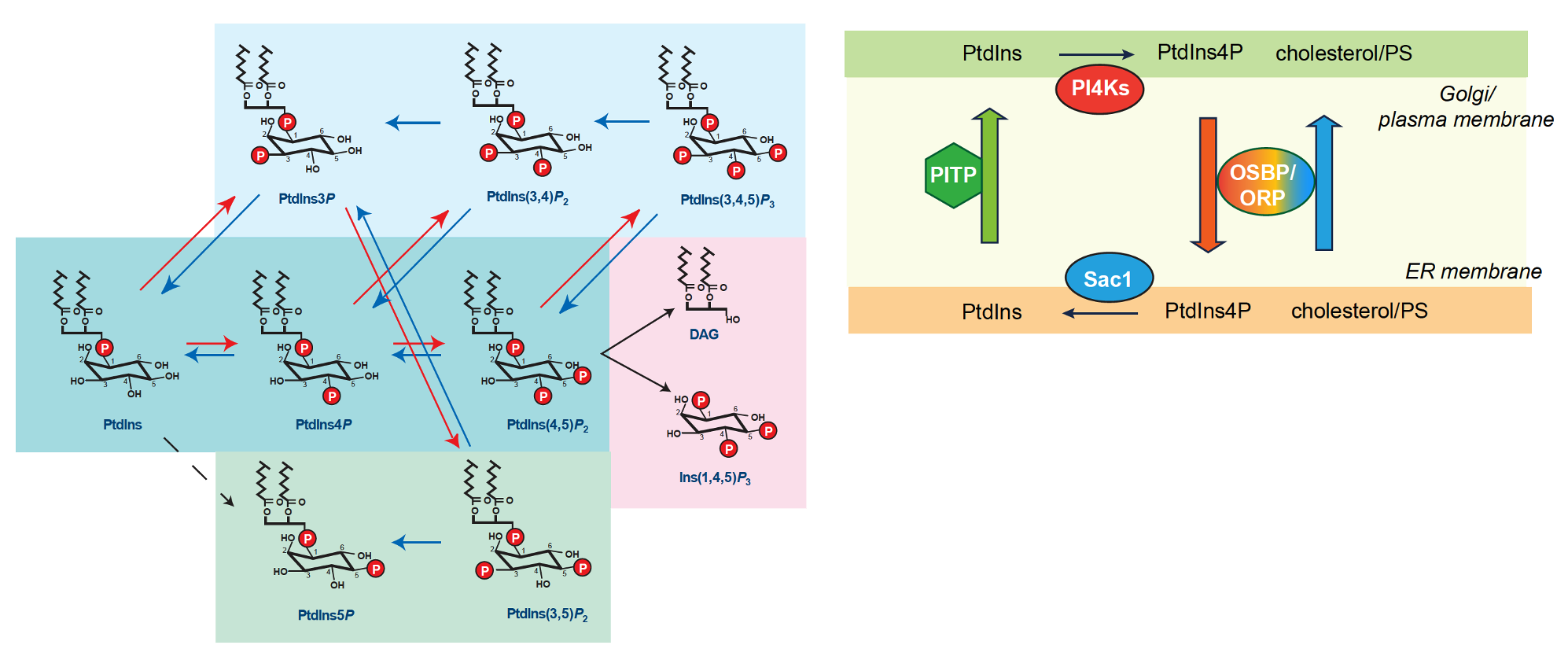Tamas Balla, National Institutes of Health
Phosphatidylinositol 4-phosphate: A minor lipid with major roles in the control of cellular lipid metabolism
Abstract:
Cellular organization of eukaryotic cells relies upon compartmentalization of their signaling nodes on special membrane platforms forming the various organelles. Unique lipid composition of the different organelle membranes not only defines their identity but also is critical for the proper assembly and functioning of the protein signaling complexes associated with them. Inositol phospholipids (PPIns), a class of regulatory lipids, play a critical role in defining membrane identity and forming membrane microdomains with unique signaling properties. Recent developments in lipid membrane biology revealed that phosphatidylinositol (PI) 4-phosphate (PI4P) gradients and the PI 4-kinases that form them drive non-vesicular transport of several structural lipids against their concentration gradients at membrane contact sites (MCSs). These processes clearly depend on the delivery of PI from its site of synthesis in the ER to the membranes where PI4Ks convert them to PI4P. Therefore, our recent efforts have been focused on the question of how PI synthesis and PI transport systems provide the means of proper PI delivery to their other membrane destinations. In this presentation, I will share some historical aspects of PI4P research and show our recent data on the generation and use of molecular tools to visualize and manipulate PI metabolism and delivery and demonstrate, how they can help us better understand the central role of PI4P and other lipids in defining the overall lipid landscape of eukaryotic cells.
Speaker: Tamas Balla, Eunice Kennedy Shriver National Institute of Child Health and Human Development, NIH
Dr. Tamas Balla is a Senior Investigator leading the Section of Molecular Signal Transduction within the Program for Developmental Neuroscience in the NICHD, NIH. Dr. Balla received his M.D. degree in 1979 from Semmelweis University Medical School in Budapest, Hungary and his Ph.D. and D.Sc. degrees from the Hungarian Academy of Sciences in 1987 and 2009, respectively. His research has been primarily concerned with the roles of phosphoinositides in cellular trafficking and signaling with particular emphasis on phosphoinositide 4-kinases. His group was one of the firsts to report on live cell imaging of PtdIns(4,5)P2 and PtdIns(3,4,5)P3 and continues to focus on improving methods by which phosphoinositides and other lipids can be visualized and manipulated in specific cellular compartments in intact living cells. Dr. Balla is a member of the American Society of Cell Biology, the American Society of Biochemistry and Molecular Biology and the Hungarian Physiological Society. He is an external member of the Hungarian Academy of Sciences.
Host: Jeffery Klauda
Seminars start at 4:00 pm, and refreshments will be served at 3:45 pm. All seminars are held in the Conference Room (1116) of the Institute for Physical Science and Technology (IPST) Building (Bldg #085) unless otherwise noted.



